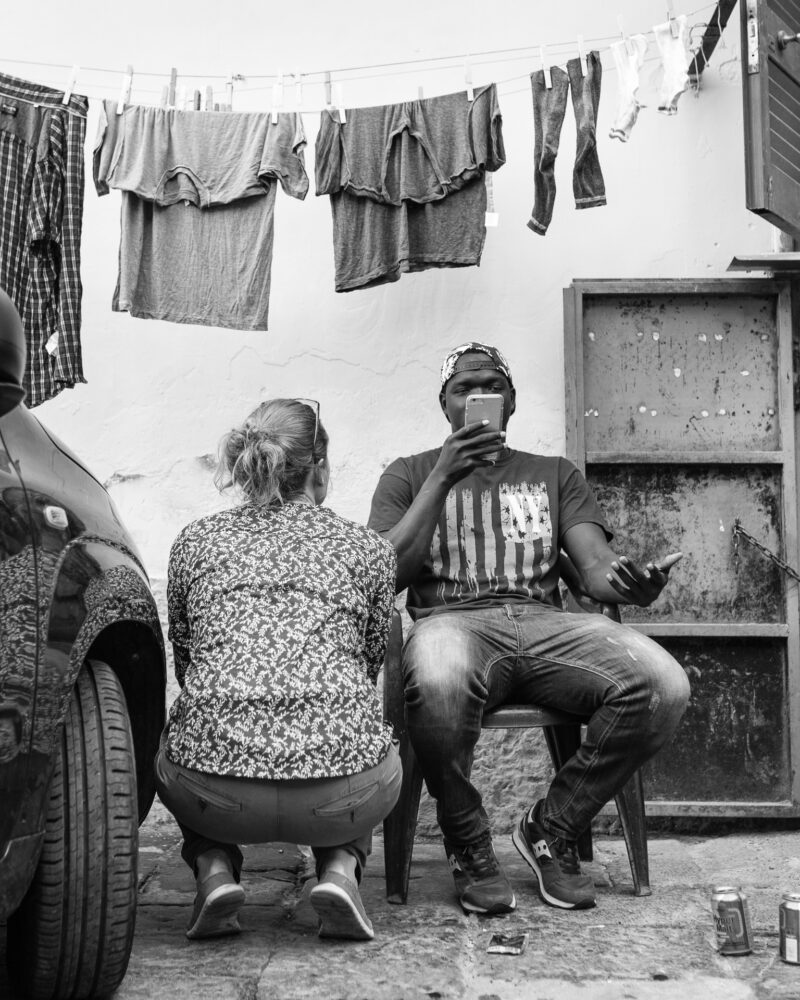“We Tried to Protect Our Village”
I turn off the video … so they won’t feel sad.


Editing by Twila Bird
Photography by Kristi Burton
Baros comes from a coastal village in West Africa. Illegal, large-scale mining of the village’s coastline for valuable minerals has endangered the livelihood and lives of local residents for years. Mining operations have not only posed a threat to tourism, which relies on unspoiled coastal beaches, but have also destroyed vast acres of peasant farmland. The mining has also triggered soil erosion, and created stagnant, flooded ditches, which then become breeding grounds for mosquitoes and habitats for crocodiles. Villagers adjacent to the damaged areas are put at risk. Baros was among dozens who protested the mining activities and confronted truckers at the site in the fall of 2015. They threw stones, smashed windshields, and vandalized mining company property. Many were arrested and tortured.
We tried to protect and fight for our right to stop those kinds of things from happening. It’s not good for our village. We had to stand and fight for our right to stop the big trucks from sand mining. When we did, we had a problem with PIU [police intervention unit] officers. There were a lot of people arrested for that issue. This is the reason why I left my country.
I worked for a while in Senegal then I went to Libya with one of my co-workers because he said we could get work there. One day I came from work and I was attacked by gunmen — you know, they were looking for money. In the struggle with them, I lost three teeth. Now, when I talk to my family with my phone, I turn off the video because I don’t want them to see my teeth so they won’t feel sad.
Now I am in Italy. I’m here for over one year now. It’s hard for us [from Africa] to live here. I don’t think the Italians feel we are the same as them. It’s because of our color. But color is only color. Are we not human beings?
Our team members obtain informed consent from each individual before an interview takes place. Individuals dictate where their stories may be shared and what personal information they wish to keep private. In situations where the individual is at risk and/or wishes to remain anonymous, alias names are used and other identifying information is removed from interviews immediately after they are received by TSOS. We have also committed not to use refugee images or stories for fundraising purposes without explicit permission. Our top priority is to protect and honor the wishes of our interview subjects.